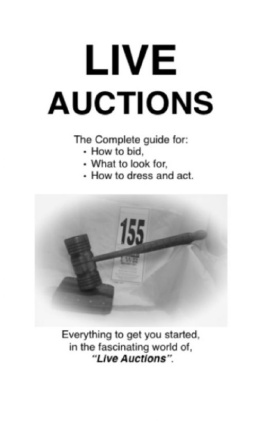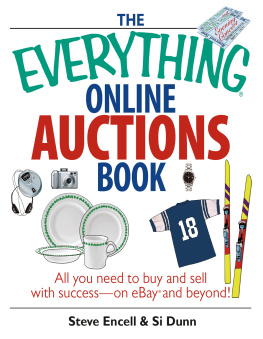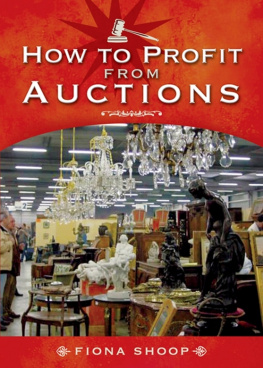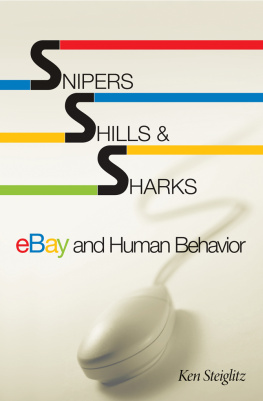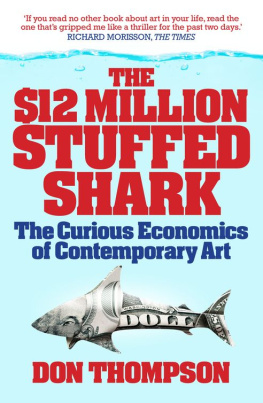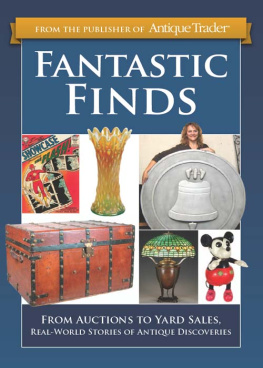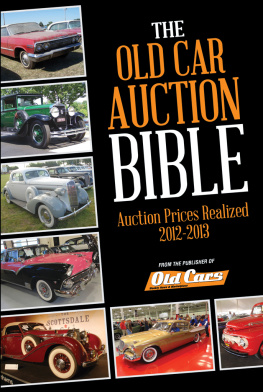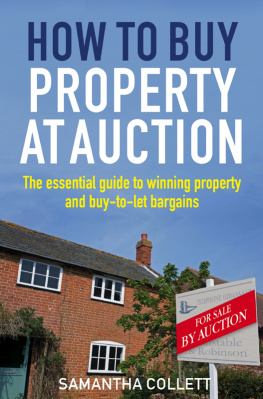LIVE AUCTIONS
The Complete guide for:
How to bid
What to look for
How to dress and act
Live Auctions
By Tom Radde
Copyright 2012 Tom Radde
Smashwords Edition - LicenseNotes
This ebook is licensed for yourpersonalenjoyment only. This ebook may not be re-sold or given awaytoother people. If you would like to share this book withanotherperson, please purchase an additional copy for eachrecipient. Ifyoure reading this book and did not purchase it, orit was notpurchased for your use only, then please return toSmashwords.comand purchase your own copy. Thank you for respectingthe hard workof this author.
If you are New to Auctions, Internet, Live, orBoth, you need to read this.
If you have some experience with Auctions, youneed to read this.
If you have been burnt by a auction, you need toread this.
If you know a lot about auctions, there may besomething here, that you dont know, therefore, you need to readthis.
If you are interested in Selling, one orhundreds of things at Auction, you need to read this book, to knowwhat the Buyer, of YOUR things, knows.
Everything to get you started, in thefascinating world of, Live Auctions.
In the first century, AD, the Entire RomanEmpire was Auctioned off.
George Washington was a avid Auction goer.
If you are new to Auctions, do NOT worry about,scratching your ear, being a bid.
At one time or another, Everything you can thinkhas been sold at a Auction. Live humans, corpses, body parts,illegal drugs, services, promises, names, etc. AbsolutelyEverything.
Everything you use or consume, the price hasbeen set by a Auction.
Auctions are Recession and Depression proof.Their always have been Auctions, their always will be.
If you bought this book, because you are a,seller, It is a worthwhile investment. Learn what the potentialbuyer of your items knows.
Table of Contents
:
:
A. Live Roman:
B. Live Dutch:
C. Internet, Dutch & Roman:
D. Oral & Electronic:
E. Personal Property:
F. Real Estate:
G. Auction houses:
H. On Site:
I. Internet:
J. Absolute:
K. Reserve:
L. Internet and Live:
M. Specialty:
N. Consignment:
:
A. Good:
B. Bad:
C. Ugly:
D. Which is which:
:
A. Oral:
B. Internet:
C. Proxy:
D. Sniping:
E. Reserves:
F. Choice:
G. Other:
:
A. Cash:
B. Check:
C. Credit Card:
D. Letter Of Credit:
E. Bank Transfer:
F. Escrow:
:
, (Caveat Emptor)
:
in the State the Auction is in:
by Auction:
:
:
:
Prologue :
There may be some assumedknowledge about Auctions here, but if you read the entire book, theterms and methods of operation, of live Auctions, everything shouldbe well explained. If still in doubt, consult a dictionary, or thisglossary, or more than one person, who is familiar with Auctions.Also, go to, listen, watch, you dont have to bid. Ask questions.If you dont know about something, asking a question, is often thesimplest way to find out. Ask someone standing next to you, orother people at the Auction. If you ask a question, and get asnippy response, so be it, ask someone else. If you ask a question,and get a snippy response from the Auctioneer, or a worker, gosomewhere else. You dont want to deal with those peopleanyway.
Dollar amounts listed here, are not reflectiveof a value of any item, they are here, only to illustrate, anexample, of how the bidding progresses.
When Auctions started, someone just rememberedwho the buyer was and how much they paid. Many time things weresettled for on the spot. Many times the bidding was in unevenamounts, like, I bid 3 goats next, I bid 5 pigs,next, I bid one horse. Then the Auctioneer said, Soldfor the horse. The Auctioneer was a elder or someone respectedin the village. Only in that village, or region was a horse worthmore. In another place or region, it may be Pigs were worth more.History of oral Auctions, from the dawn of mankind, to thisrelatively modern time, is absolutely fascinating, but not thesubject of this book.
Later, someone keep track of the amount andbuyer, then auctions, were mostly local, and the clerk, (most casesthe local towns banker) knew everyone, When a bidder boughtsomething, the, clerk, wrote down the name of the buyer, (with thename of the item, and the price). When the new invention of carbonpaper came to be, this information was written on a sheet ofpre-scored paper, with two carbons. The small piece could beseparated. The buyer got the small piece, one for each item, theseller got one sheet, for all the items, and the Auctioneer orbanker kept one.
When that, sheet came into the room in aauction house, clerking shack, a room in the house, or the back ofthe carriage house or garage, via the runner, (the front of thegarage was usually the lunch) the cashier, totaled the sheet, toreapart the pre perforated pieces for each item, Then they put thoseitems, according to who was the buyer, onto it respective place.When the buyer came to settle up, the cashier usually said:what was the last item you bought, if that item was not inthe pile of items to be paid for, the clerk said: lets waitfor the next sheet.
As Auctions got larger, knowing everyone becameimpracticable, so a potential buyer, stopped first at the, biddingnumber place and got a number. If you were a, local, (thecashier in the shack, was usually a cashier from that local bank)they just gave you a number, and recorded, your name. If you werenot known, then most cases a drivers license was handed over, andthat information was recorded. Now the bidder had a number, so theAuction went faster. But still being recorded on a multi part, preperforated sheet.
In the clerking place, where the names ofbidders recorded, the clerk had a box with a-z on littlecubbyholes, or a plywood board with clips attached to it, and byeach clip was a letter, The buyers items, were put together byname, and clipped to the board or put in the slot. If there werethree bidders with the last name starting with A, then each personsitems were usually held together with a paper clip.
When a buyer was assigned a number, the littleboxes were numbered 1 - 100, or the piece of plywood with clips onit, was so numbered. If it was a large auction and there were over100 buyers registered, 1-100 went on one way into the clips, and101 + went another way into the same clips.
Even though giving the bidder a number, was ahuge improvement, there was still the piece of paper, which theclerk had to write the vital information on, (Item, Price, BidderNumber). and that piece of very important information had to behanded to the cashier, in a timely fashion. When the time came to,settle up, the cashier still said, to the buyer: What was thelast item you bought.
Today, Most auctions, the clerk, the person nextto the Auctioneer, recording the sale information, types thatinformation into a computer terminal, and then that information isinstantly sent to the cashier. When the buyer is ready to pay says:Number 123. Now the cashier presses a few buttons on a keyboard,and out of the printer pops a sheet, with all the items bought,totaled, and if needed, the sales tax, buyers premium is added, andthe buyer pays the total on the bottom of the sheet.
Social/Business: The flavor of some Auctions,lean to being a social event. Think of a Estate, all the kids &grandkids, nieces, nephews, siblings, friends, etc. come to seeeach other, and visit. Their can be some terrific bargains, whenthe family does not pay attention, and you will see some totallyoutrageous prices, when something has sentimental value, to onlythe family or friends, when they are bidding against each other.Usually a very jovial outgoing crowd.
Next page
